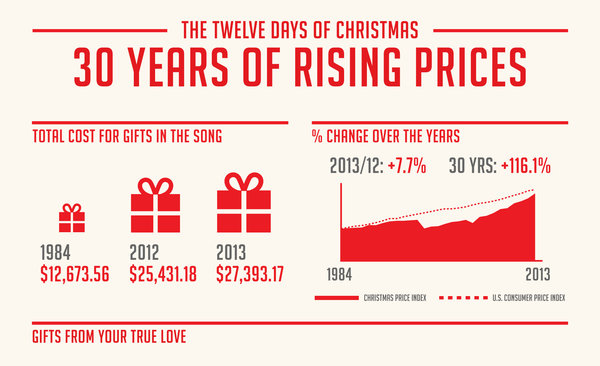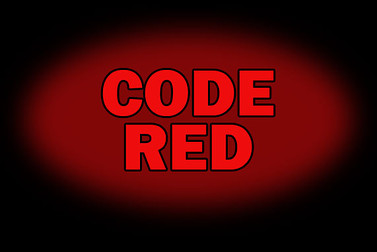“The Twelve Days of Christmas” Tab Costs $27,393
 The collective cost of items featured in the “The Twelve Days of Christmas” rose 7.7% over last year, according to PNC Financial, to $27,393.
The collective cost of items featured in the “The Twelve Days of Christmas” rose 7.7% over last year, according to PNC Financial, to $27,393.
For 30 years PNC has compiled the Christmas Price Index. Since the index was first compiled in 1983, year-over-year inflation increases have averaged 2.9%.
For this year, the price to hire nine ladies dancing rose the most, 20%, while 10 lords a-leaping jumped 10%.
Here’s a breakdown of the cost of the twelve gifts:
- One partridge in a pear tree: $200
- Two turtledoves: $125
- Three French hens: $165
- Four calling birds: $600
- Five gold rings: $750
- Six geese: $210
- Seven swans: $7,000
- Eight milking maids: $58 (if they’re paid the federal minimum wage of $7.25 an hour)
- Nine ladies dancing: $7,553
- Ten leaping lords: $5,243
- Eleven pipers piping: $2,635
- Twelve drummers: $2,855
Note: The drummers, dancing ladies, leaping lords, piping pipers are rented, not bought.
 Source: PNC
Source: PNC










